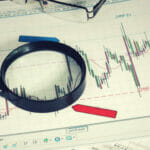It can be difficult to discern between financial and political instability. Global capital markets often mirror tempestuous political campaigns, eliciting financial anxiety that might not have otherwise existed.
Political Instability
To illustrate an example of this behaviour, let’s reach back to November 22, 1963. It was the day that President John F. Kennedy was shot and killed as he rode through a motorcade in downtown Dallas, Texas. President Kennedy’s assassination created panic on Wall Street. After the S&P 500 Index dropped by 2.8%, markets were closed around 2pm. When investors realized that the assassination was a tragic political and emotional event, but not a harbinger of economic collapse, the market quickly rebounded.
We saw a similar reaction in June 2016 when markets faltered in reaction to Britain’s unexpected decision to exit the European Union. Less than 24 hours after the decision was announced, the S&P 500 dropped by 5.4%. Three weeks later, the Index reached an all-time high.
Yet again, on November 8, 2016, markets were sent reeling in reaction to the unexpected election of Donald Trump. As a Clinton win began to look less likely, Dow Jones Industrial Index futures dropped more than 500 points and S&P 500 futures hit their trading limit after plunging 5%. The very next day, the index closed ever higher, marking the start of a strong rally.
From these reactions, we can see that capital markets are prone to mirror the volatility of popular political events.
The truth of the matter is, many momentous political events have little to no impact on, for example, Johnson & Johnson’s ability to sell soap – or the consumer’s desire to buy it. We use the term “capital market volatility” to describe aggregate changes in the prices of stocks. Of course, these prices are determined by many small “buy” and “sell” decisions from individuals and other market participants. In times of perceived crisis these decisions are often driven by two primordial forces: fear and greed, both of which cause people to react irrationally to political events. Each individual decision adds momentum to the panic. Even in cases where the general optimistic or pessimistic sentiment of the market is “correct” – that is to say, the price of a stock is moving in the direction of the company’s intrinsic value – the magnitude of that move is often overblown.
Now, it would be wrong to imply that all political decisions are superfluous. There are circumstances where politicians can have a significant impact on the financial outlook of a given company; where the stroke of a pen or the line of a speech can create or destroy millions of dollars in real value. This tends to occur when governments materially own or control business interests in their jurisdiction, and can be common in countries like Russia, China or Saudi Arabia, where the central objective of some companies is to advance the personal, public or financial interests of their government.
So what kind of decisions does Burgundy make to insulate investments from political noise?
Partner with Capable, Honest Management
Be very cautious about buying a stake in a government-controlled company. While the privatization of a good business can offer opportunities, long-term government control can mean that local or domestic political concerns will weigh more heavily than the interests of private sector minority shareholders. Management teams will always ultimately answer to their political masters and money-losing decisions may result.
Look for Companies with Strong Economics
Look for companies with strong economics, cash flows and barriers to entry. Often these companies are resilient to both political and economic cycles, generate heaps of free cash flow, create long-term value for shareholders and consistent satisfaction for customers.
Be Opportunistic in Political Crises
Quality companies are hard to find, and are often priced at a premium. A political crisis may create the opportunity to invest in some great businesses at discount prices. For example, the election of Donald Trump undoubtedly redefined the political landscape of the United States; however, American companies were not significantly more or less productive on November 9th than they were on November 7th.
Focus on Companies that are Global in Nature
Another way to insulate investment portfolios from political risk is to invest in companies that are global in nature. That way, no single government decision, trade policy or election is likely to blindside the underlying business. Many of the companies we own sell thousands of items to many millions of people around the world.
Remain Resolute!
When confronted with difficult situations, people naturally want to react. But, the short-term impacts of political events are outside of our control. To achieve our long-term investment objectives, we must remain resolute and focus on what is within our control. By relying on a time-tested investment philosophy – and sticking to it over time – astute investors can navigate through political calamities to achieve their long-term investment goals.
Article by Roz McLean, Burgundy Blog












